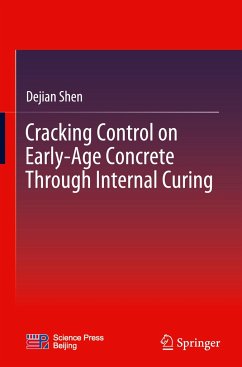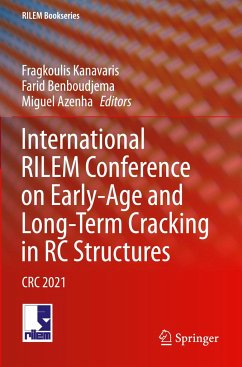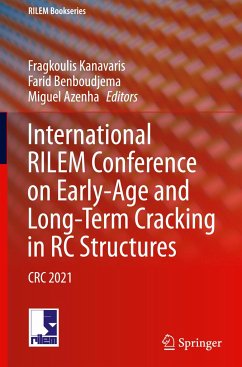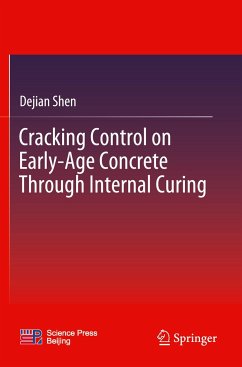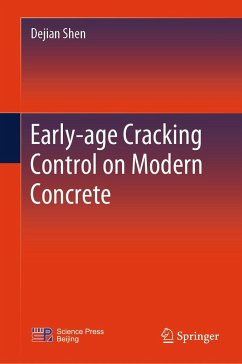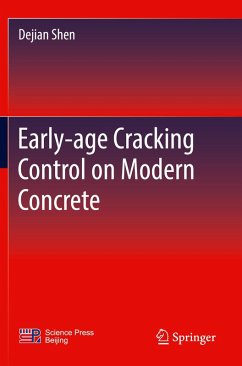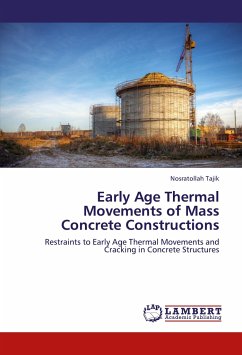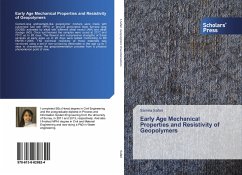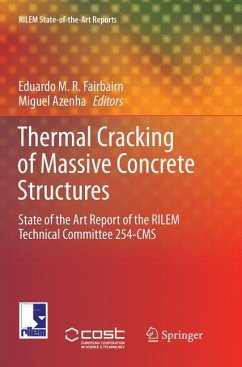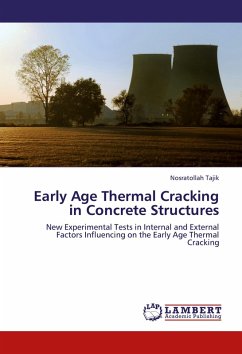
Early Age Thermal Cracking in Concrete Structures
New Experimental Tests in Internal and External Factors Influencing on the Early Age Thermal Cracking
Versandkostenfrei!
Versandfertig in 6-10 Tagen
52,99 €
inkl. MwSt.

PAYBACK Punkte
26 °P sammeln!
In this book has been shown that the early age thermal cracking in concrete structures resulted from either internal restraint caused by differential expansion within concrete member during heating due to larger temperatures gradient between the core, and that the adjacent media or by external restraint to contract on cooling from a temperature peak of the concrete specimen are the critical factors in developing early age thermal cracking. It has been found that the temperature differential that causes early age thermal cracking in concrete is greater than that figure found in previous researc...
In this book has been shown that the early age thermal cracking in concrete structures resulted from either internal restraint caused by differential expansion within concrete member during heating due to larger temperatures gradient between the core, and that the adjacent media or by external restraint to contract on cooling from a temperature peak of the concrete specimen are the critical factors in developing early age thermal cracking. It has been found that the temperature differential that causes early age thermal cracking in concrete is greater than that figure found in previous research. Other factors influencing the development of the thermal cracking were investigated and recommendations on controlling the early age thermal cracking are given. The experimental technique carried out in this research investigation is an improvement on the past research on the early age cracking and the effects of internal and external restraints were studied. Further methods of assessing the risk of the early age thermal cracking in mass concrete under natural environmental conditions developed and the results are compared with those under laboratory conditions.



